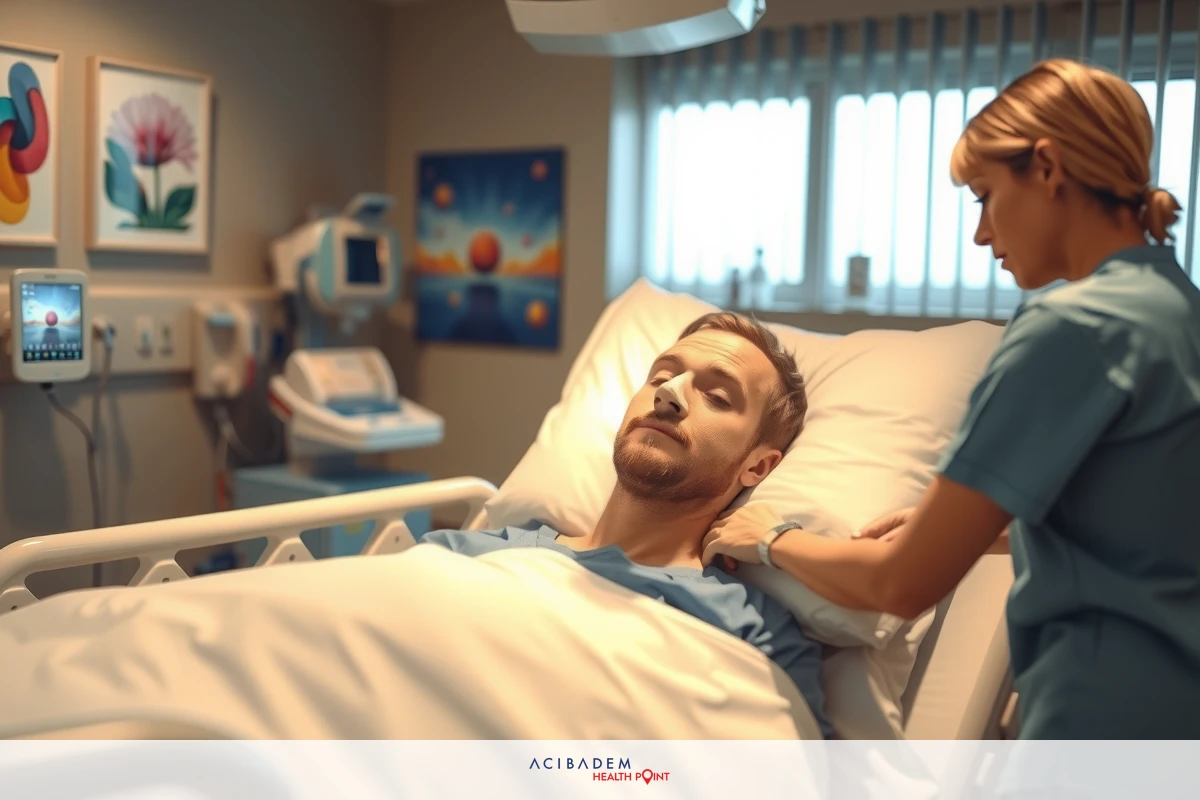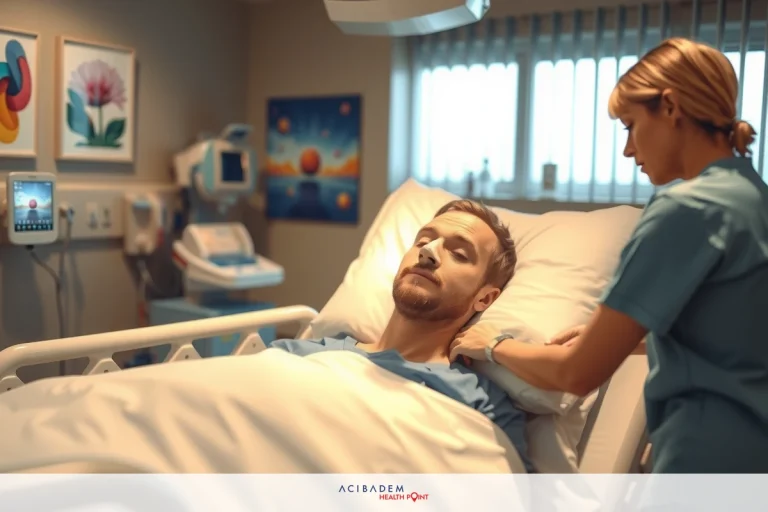Why Does My Nose Itch After Rhinoplasty
Why Does My Nose Itch After Rhinoplasty Rhinoplasty, a reformation of the nose, often leaves patients with an intriguing question: why does my nose itch after surgery? If you’re recovering from this treatment and battling an unanticipated bout of itching, rest assured that it’s relatively common. This sensation can be attributed to various factors—each playing its unique part in your healing journey.
Itching sensations post-rhinoplasty might seem troublesome but they are merely signals sent by your body indicating its response to the surgical intervention. The process of recovery involves dealing with such minor discomforts. Furthermore, there are effective strategies available for managing these sensations which will not interfere with your healing process but potentially accelerate it. Understanding these could help prevent complications too!
While scratching the itch may provide momentary relief, remember that it could lead to complications or slow down recovery. Thus learning about preventive measures is crucial during rhinoplasty recovery – they ensure a smooth transition back to normalcy minus any unwelcome surprises.
Causes of Post-Operative Itching
One might wonder why rhinoplasty, a surgical procedure that primarily involves bone and cartilage modifications, results in itching—a sensation typically associated with skin reactions. The answer lies within the complex healing process our bodies undertake post-surgery. During recovery, your body kickstarts an inflammatory response to protect the affected area and facilitate healing. This response often results in itching sensations.
Inflammation is one of the key players responsible for post-operative itching after rhinoplasty. Inflammatory cells rush to the site of surgery causing redness, swelling and yes—you guessed it—itching! Moreover, nerve fibers around the nose may be disturbed during surgery leading them to send itch signals as they regenerate during recovery. This is another common cause behind that nagging itchiness you might experience following your operation.
The issue isn’t just confined to internal causes; external factors play their part too. For instance, dryness in nasal passages can exacerbate itching sensations significantly post-rhinoplasty. As patients are advised against blowing their noses for some time after surgery due to risk of bleeding or disrupting sutures, this could lead to increased dryness—and therefore more pronounced bouts of itchy discomfort.
Additionally, certain medications prescribed during recovery can also trigger these sensations as side effects—an aspect often overlooked when tracing back potential causes for this mysterious itchiness experienced by many recovering from rhinoplasty procedures.
Understanding these contributing factors allows us not only identify but also manage this natural yet annoying manifestation effectively without compromising on our comfort or impeding our path towards complete recovery.
Tips for Managing Itching
Post-rhinoplasty itching can be quite a challenge to manage, but knowing that it’s part of your body’s healing process can provide some comfort. Furthermore, there are several strategies you could employ to alleviate this discomfort without disrupting the recovery journey. Here we compile a list of effective suggestions which might prove beneficial in managing those bothersome sensations.
- Keep Hydrated: Drinking ample water keeps your body hydrated and promotes faster healing. This hydration also extends to the nasal passages, preventing excessive dryness that can exacerbate itching.

The image shows an indoor hospital setting with a medical professional, presumably a nurse, attending to a patient. The patient is in bed and appears to be resting or recovering. Various medical equipment and charts are visible around the room, indicative of a healthcare environment. - Use a Humidifier: A humidifier adds moisture into the air and helps prevent dryness within nasal cavities thus reducing itchiness post-rhinoplasty.
- Apply Cold Compresses: Gentle application of cold compresses around the nose area (not on!) may help soothe inflammation and reduce itchiness.
- Avoid Touching or Scratching Your Nose: As tempting as it might be, touching or scratching prolongs inflammation and increases chances of infection—both of which intensify itching sensations.
- Stay Away from Irritants: Limit exposure to dust, smoke or other allergens as these can irritate nasal passages leading to increased itchiness during recovery period from rhinoplasty.
- Follow Medication Guidelines: Ensure adherence to prescribed medications—even if they seem unrelated—they often play vital roles in controlling symptoms like swelling and itching during post- operative period after rhinoplasty surgery.
Remember that while these tips are helpful for management, each individual’s response varies; hence patience is key! Always consult with your healthcare provider before making significant changes in your recovery regime following rhinoplasty surgery.
Why Does My Nose Itch After Rhinoplasty: Preventing Complications
Post-rhinoplasty itching is not a mere annoyance—it can potentially lead to complications if left unmanaged or handled improperly. Scratching the itch, for instance, poses risks such as introduction of bacteria leading to infections, disruption of sutures and slowing down of healing process. Therefore, it becomes imperative that patients learn about prevention strategies alongside management tactics when dealing with post- operative itching.
The first step towards preventing complications involves resisting the urge to scratch. It might seem like an oversimplification but its importance cannot be overstressed! Every scratch on your nose could possibly invite unwanted issues including potential damage to internal structures and infections due to transfer of germs from hands onto surgical wounds. This makes hand hygiene critical during recovery phase after rhinoplasty surgery—keeping hands clean decreases chances of introducing infectious agents in case inadvertent touching occurs.
Another crucial preventive measure revolves around maintaining optimal moisture levels within nasal passages. As dryness tends to intensify itching sensations which often leads people into scratching their noses, ensuring adequate hydration can help circumvent this issue effectively. Using humidifiers or taking steam-based treatments (as advised by healthcare providers) are common ways one could adopt in pursuit of achieving this balance between keeping nasal linings moist while avoiding excessive dampness that could breed other problems.
Adhering strictly to medication regimes forms another cornerstone in preventing complications related with post-operative itching following rhinoplasty procedures. Medications prescribed during recovery often include anti-inflammatory drugs aimed at reducing swelling—a major contributor towards itchiness—as well
as antibiotics which serve as defence against potential infections that cause aggravation in symptoms including itchiness.
In essence, preventing complications resulting from post-rhinoplasty itching centres on understanding triggers and managing them proactively through disciplined practices and patience—an approach that assures you experience a comfortable journey towards complete recovery without stumbling upon unwarranted surprises along the way.
Frequently Asked Questions
How long does the itching last after a rhinoplasty surgery?
The duration of post-operative itching can vary from person to person depending on several factors including individual healing rates and adherence to recovery guidelines. Typically, it might last for a few weeks but could extend longer in some cases.
Is the post-rhinoplasty itch an indication of any serious complications?
Not necessarily. Itching is common during the healing process following surgeries such as rhinoplasty and usually isn't indicative of serious complications. However, if accompanied by other symptoms like severe pain or unexpected swelling, you should consult your healthcare provider immediately.
Are there any specific medications that help relieve this itchiness?
While there may not be direct medication to cure post-rhinoplasty itchiness, certain drugs aimed at reducing inflammation can indirectly alleviate these sensations. Always remember to use prescribed medicines only under guidance from your healthcare provider.
What happens if I accidentally scratch my nose while it's still recovering?
Accidental scratching could potentially lead to infections due to bacteria transfer or disrupt the healing process by causing damage internally. If you find yourself having scratched your nose inadvertently during recovery period after rhinoplasty surgery, seek advice from your healthcare provider promptly.











